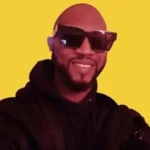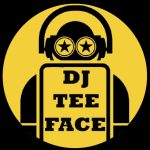DJ Teeface
LIVE DJ Events In Ireland
DJ Teeface LIVE DJ Events In Ireland
Catch DJ Teeface LIVE at Suya Man, Drogheda. Ticket and more info on www.AfroParty.ie
Catch DJ Teeface LIVE at Suya Man, Drogheda. Ticket and more info on www.AfroParty.ie
DJ Teeface LIVE DJ Events In Dublin Ireland
DJ Teeface LIVE
DJ Events In Dublin Ireland
The Most Exclusive LIVE DJ Events In Dublin – DJ Teeface Catch DJ Teeface playing LIVE DJ events in Dublin, Ireland. You can’t afford to miss the very best tunes of all-time. Hits from the 80s to 2024 hits…
The Most Exclusive LIVE DJ Events In Dublin – DJ Teeface Catch DJ Teeface playing LIVE DJ events in Dublin, Ireland. You can’t afford to miss the very best tunes of all-time. Hits from the 80s to 2024 hits…
A disc jockey, more commonly abbreviated as DJ, is a person who plays recorded music for an audience. Types of DJs include radio DJs (who host programs on music radio stations), club DJs (who work at nightclubs or music festivals), mobile DJs (who are hired to work at public and private events such as weddings, parties, or festivals), and turntablists (who use record players, usually turntables, to manipulate sounds on phonograph records). Originally, the “disc” in “disc jockey” referred to shellac and later vinyl records, but nowadays DJ is used as an all-encompassing term to also describe persons who mix music from other recording media such as cassettes, CDs or digital audio files on a CDJ, controller, or even a laptop. DJs may adopt the title “DJ” in front of their real names, adopted pseudonyms, or stage names.[1]
DJs commonly use audio equipment that can play at least two sources of recorded music simultaneously. This enables them to blend tracks together to create transitions between recordings and develop unique mixes of songs. This can involve aligning the beats of the music sources so their rhythms and tempos do not clash when played together and enable a smooth transition from one song to another. DJs often use specialized DJ mixers, small audio mixers with crossfader and cue functions to blend or transition from one song to another. Mixers are also used to pre-listen to sources of recorded music in headphones and adjust upcoming tracks to mix with currently playing music. DJ software can be used with a DJ controller device to mix audio files on a computer instead of a console mixer. DJs may also use a microphone to speak to the audience; effects units such as reverb to create sound effects and electronic musical instruments such as drum machines and synthesizers.
Etymology
The term “disc jockey” was ostensibly coined by radio gossip commentator Walter Winchell in 1935 to describe the radio work of Martin Block. The phrase first appeared in print in a 1941 Variety magazine. Originally, the word “disc” in “disc jockey” referred to phonograph or gramophone records and was used to describe radio personalities who introduced them on the air.[2][3]
Role
“DJ” is used as an all-encompassing term to describe someone who mixes recorded music from any source, including vinyl records, cassettes, CDs, or digital audio files stored on USB stick or laptop. DJs typically perform for a live audience in a nightclub or dance club or a TV, radio broadcast audience, or an online radio audience. DJs also create mixes, remixes and tracks that are recorded for later sale and distribution. In hip hop music, DJs may create beats, using percussion breaks, basslines and other musical content sampled from pre-existing records. In hip hop, rappers and MCs use these beats to rap over. Some DJs adopt the title “DJ” as part of their names (e.g., DJ Jazzy Jeff, DJ Qbert, DJ Shadow and DJ Yoda). Professional DJs often specialize in a specific genre of music, such as techno, house or hip hop music. DJs typically have extensive knowledge about the music they specialize in. Many DJs are avid music collectors of vintage, rare or obscure tracks and records.
The Most Exclusive LIVE DJ Events In Dublin – DJ Teeface Catch DJ Teeface playing LIVE DJ events in Dublin, Ireland. You can’t afford to miss the very best tunes of all-time. Hits from the 80s to 2024 hits…
The Most Exclusive LIVE DJ Events In Dublin – DJ Teeface Catch DJ Teeface playing LIVE DJ events in Dublin, Ireland. You can’t afford to miss the very best tunes of all-time. Hits from the 80s to 2024 hits…
The Most Exclusive LIVE DJ Events In Dublin – DJ Teeface Catch DJ Teeface playing LIVE DJ events in Dublin, Ireland. You can’t afford to miss the very best tunes of all-time. Hits from the 80s to 2024 hits…
The Most Exclusive LIVE DJ Events In Dublin – DJ Teeface Catch DJ Teeface playing LIVE DJ events in Dublin, Ireland. You can’t afford to miss the very best tunes of all-time. Hits from the 80s to 2024 hits…
The Most Exclusive LIVE DJ Events In Dublin – DJ Teeface Catch DJ Teeface playing LIVE DJ events in Dublin, Ireland. You can’t afford to miss the very best tunes of all-time. Hits from the 80s to 2024 hits…
A disc jockey, more commonly abbreviated as DJ, is a person who plays recorded music for an audience. Types of DJs include radio DJs (who host programs on music radio stations), club DJs (who work at nightclubs or music festivals), mobile DJs (who are hired to work at public and private events such as weddings, parties, or festivals), and turntablists (who use record players, usually turntables, to manipulate sounds on phonograph records). Originally, the “disc” in “disc jockey” referred to shellac and later vinyl records, but nowadays DJ is used as an all-encompassing term to also describe persons who mix music from other recording media such as cassettes, CDs or digital audio files on a CDJ, controller, or even a laptop. DJs may adopt the title “DJ” in front of their real names, adopted pseudonyms, or stage names.[1]
DJs commonly use audio equipment that can play at least two sources of recorded music simultaneously. This enables them to blend tracks together to create transitions between recordings and develop unique mixes of songs. This can involve aligning the beats of the music sources so their rhythms and tempos do not clash when played together and enable a smooth transition from one song to another. DJs often use specialized DJ mixers, small audio mixers with crossfader and cue functions to blend or transition from one song to another. Mixers are also used to pre-listen to sources of recorded music in headphones and adjust upcoming tracks to mix with currently playing music. DJ software can be used with a DJ controller device to mix audio files on a computer instead of a console mixer. DJs may also use a microphone to speak to the audience; effects units such as reverb to create sound effects and electronic musical instruments such as drum machines and synthesizers.
Etymology
The term “disc jockey” was ostensibly coined by radio gossip commentator Walter Winchell in 1935 to describe the radio work of Martin Block. The phrase first appeared in print in a 1941 Variety magazine. Originally, the word “disc” in “disc jockey” referred to phonograph or gramophone records and was used to describe radio personalities who introduced them on the air.[2][3]
Role
“DJ” is used as an all-encompassing term to describe someone who mixes recorded music from any source, including vinyl records, cassettes, CDs, or digital audio files stored on USB stick or laptop. DJs typically perform for a live audience in a nightclub or dance club or a TV, radio broadcast audience, or an online radio audience. DJs also create mixes, remixes and tracks that are recorded for later sale and distribution. In hip hop music, DJs may create beats, using percussion breaks, basslines and other musical content sampled from pre-existing records. In hip hop, rappers and MCs use these beats to rap over. Some DJs adopt the title “DJ” as part of their names (e.g., DJ Jazzy Jeff, DJ Qbert, DJ Shadow and DJ Yoda). Professional DJs often specialize in a specific genre of music, such as techno, house or hip hop music. DJs typically have extensive knowledge about the music they specialize in. Many DJs are avid music collectors of vintage, rare or obscure tracks and records.
The Most Exclusive LIVE DJ Events In Dublin – DJ Teeface Catch DJ Teeface playing LIVE DJ events in Dublin, Ireland. You can’t afford to miss the very best tunes of all-time. Hits from the 80s to 2024 hits…
The Most Exclusive LIVE DJ Events In Dublin – DJ Teeface Catch DJ Teeface playing LIVE DJ events in Dublin, Ireland. You can’t afford to miss the very best tunes of all-time. Hits from the 80s to 2024 hits…
The Most Exclusive LIVE DJ Events In Dublin – DJ Teeface Catch DJ Teeface playing LIVE DJ events in Dublin, Ireland. You can’t afford to miss the very best tunes of all-time. Hits from the 80s to 2024 hits…



